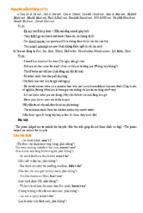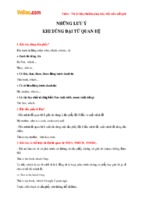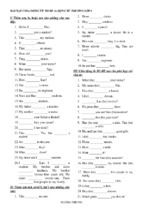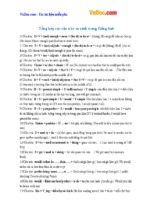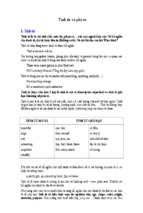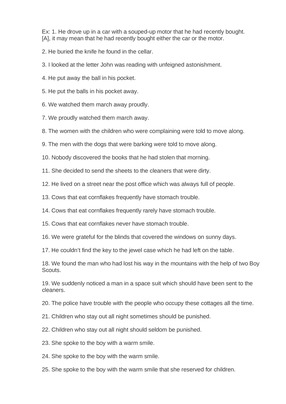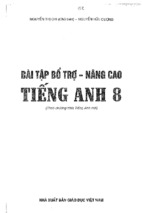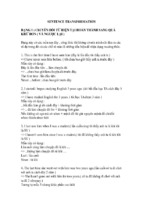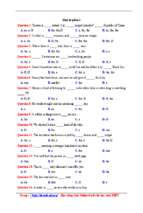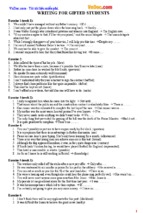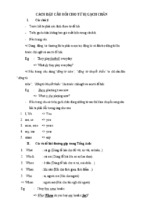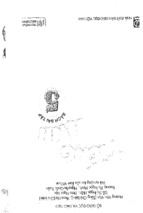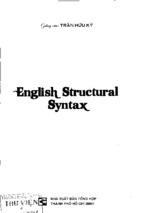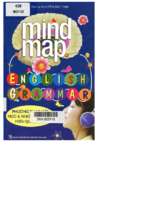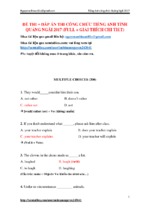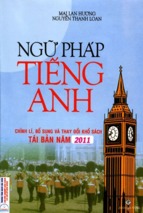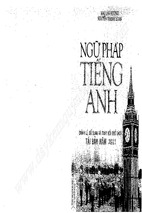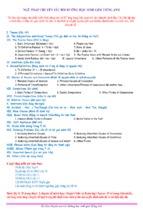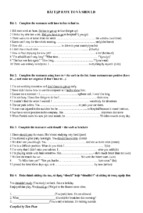BRITISH
ENGLISH
A TO ZED
h
BRITISH
ENGLISH
A TO ZED
h
Third Edition
N O R M A N W. S C H U R
Revised by EUGENE EHRLICH
and richard ehrlich
BRITISH ENGLISH A TO ZED, THIRD EDITION
Third edition copyright © 2007 by Eugene Ehrlich and the estate of Norman W.
Schur. Original edition copyright © 1987, 2001 by Norman W. Schur.
All rights reserved. No part of this book may be reproduced or utilized in
any form or by any means, electronic or mechanical, including photocopying,
recording, or by any information storage or retrieval systems, without
permission in writing from the publisher. For information contact:
Facts On File, Inc.
An imprint of Infobase Publishing
132 West 31st Street
New York NY 10001
Library of Congress Cataloging-in-Publication Data
Schur, Norman W.
British English A to Zed / Norman W. Schur with Eugene Ehrlich.—Rev. and
updated ed.
p. cm.
Includes index.
ISBN 0-8160-6455-5 (hardcover : alk. paper)
1. English language—Great Britain—Dictionaries. 2. Great Britain—
Civilization—Dictionaries. I. Ehrlich, Eugene H. II. Title.
PE1704 .S38 2001
423′.1—dc21
00-060059
Facts On File books are available at special discounts when purchased in bulk
quantities for businesses, associations, institutions, or sales promotions. Please
call our Special Sales Department in New York at 212/967-8800 or 800/322-8755.
You can find Facts On File on the World Wide Web at
http://www.factsonfile.com
Cover design by Dorothy M. Preston
Printed in the United States of America
MP FOF 10
9
8
7
6
5
4
3
2
This book is printed on acid-free paper.
1
Contents
Foreword
vii
Preface to the First Edition
Explanatory Notes
xi
Introduction
1
British English: A to Zed
ix
5
Appendix I—General Differences between
British and American English
A. Syntax
408
1. Prepositions
408
2. Definite articles
409
3. Compound nouns
409
4. Noun-verb agreement; collectives
5. Who and other pronouns
410
408
409
B. Pronunciation
410
1. Proper nouns and adjectives; general; county name abbreviations
(Tables)
410
2. Common nouns (Tables)
412
C. Spoken Usage and Figures of Speech
412
1. General
412
2. Do and done
413
3. Directness and subtlety of British and American styles
compared
413
4. Usage of selected units of measure
413
5. Usage of selected monetary units
413
6. U and non-U
413
D. Punctuation and Style
414
1. Hyphens
414
2. Parentheses
414
3. Quotation marks
414
4. Time of day
414
5. Dates
414
6. Abbreviations of forms of address
7. Forms of address
414
8. Placement of River
414
9. Miscellaneous abbreviations
415
E. Spelling
415
414
Appendix II—Glossaries and Tables
A. Currency
416
416
B. Financial Terms
417
C. Units of Measure
417
1. Dry measure
417
a. barrel
417
b. hundredweight
417
c. keel
417
d. quart
417
e. score
418
i. pigs, oxen
418
ii. coal
418
f. stone (Table of weights of various commodities)
418
g. ton
418
h. windle
418
2. Liquid measure
418
a. gallon
418
b. gill
419
c. pint (see gallon)
419
d. quart (see gallon)
419
D. Numbers (Table)
419
E. Automotive Terms (Table for parts of: Body, Brakes, Chassis, Electrical
Equipment, Motor and Clutch, Axle and Transmission, Steering, Tools
and Accessories, Transmission, Tires)
422
F. Musical Notation (Table)
424
G. Slang
424
1. Cant
424
2. London slang (Table)
425
3. Rhyming slang (Table)
425
4. Poker slang (Table)
426
5. British betting terms (Glossary)
426
H. Food Names
427
427
I.
Botanical and Zoological Names
J.
Britain, Briton, British, English, etc.
428
K. Cricket Terms (Glossary)
429
L. Connotative Place-Names
430
Index
433
Foreword
Nearly 20 years have passed since the first edition of British English A to Zed was
published, and five since its second edition. Over those two decades, and even
in the half-decade since the second edition, there have been significant changes
in British English—and in British life. This edition aims at taking stock of those
changes.
Most important, this edition adds more than 500 new words and terms that
have come into common use since the previous edition was published. The additions are by no means comprehensive, but they include some of the most prominent new locutions in a language that has grown increasingly rich. The Queen’s
English, often regarded as a paradigm of correct and "proper" usage, has been
busy absorbing words and phrases from diverse sources—some reflecting new
political alignments, some from overseas, many from the argot of the street. No
lexicon of British English can ignore these, as Norman Schur recognized when he
wrote the first edition of British English A to Zed, and this edition continues with
that work.
This new edition also adds a gloss on the work of the two earlier editions. Some
of the words given as standard usage in the first edition are now rarely used, and
those entries have been duly amended to take account of the change. Some old
words have changed their meanings, and those changes, too, are included. It
should also be noted that some fundamental changes in British life—in areas
as diverse as education and telecommunications—have occurred since Norman
Schur wrote his first edition. This edition attempts to track those changes, both in
amended entries and in new entries.
Any language is in a constant state of development. When this book is next
updated, whether in five or in 20 years, the incessant process of linguistic and
social change will require still further additions and emendations. This edition,
though compiled with utmost care, can be regarded only as a work in progress.
And that is true also of the English language itself.
We thank Emma Dally, of London, England, for her invaluable assistance with
many editorial tasks. Rebecca, Alice, and Ruth Ehrlich all gave valuable advice
on contemporary slang. We thank also the editorial team at Facts On File, especially Jeffrey Soloway and Cameron Dufty, for their close attention to all aspects
of the project.
Eugene Ehrlich
Mamaroneck, New York
Richard Ehrlich
London, England
vii
Preface to the
First Edition
The book is essentially a glossary of Briticisms for the guidance of Americans
caught in the entrapment of a common language. I have seen fit to include certain
terms and expressions which, though they may be fading from current British
use, or may even have disappeared completely from most people’s everyday
conversation, an American might run up against in the literature of a few years
ago, or quite possibly in the conversation of an elderly person, especially in the
more remote parts of the British countryside. In some instances, I have expanded
the discussion in an effort to demonstrate not only peculiarities of the language
of Britain, but also aspects of her culture as reflected by her language.
What began as a pastime took on tangible form and, somewhat to my own
surprise, has emerged as a serious compilation. I would be grateful if (in addition to omissions and possible erroneous inclusions and definitions) new items
which appear from time to time were called to the attention of the publisher. Not
the least of my rewards has been the volume and tenor of the response I have
received from scholars and aficionados in many parts of the world who have
written letters ranging from a few words of appreciation to essays full of valuable
information and comments. Many of the entries must evoke some controversy
and even censure. “A dictionary-maker,” said H. W. Fowler in his preface to the
Concise Oxford Dictionary (reprinted in the sixth edition of that admirable work,
1976), “unless he is a monster of omniscience, must deal with a great many matters of which he has no first-hand knowledge. That he has been guilty of errors
and omissions in some of these he will learn soon after publication, sometimes
with gratitude to his enlightener, sometimes otherwise.”
—Norman Schur
1987
ix
Explanatory Notes
For a full discussion of the criteria used in assembling the Briticisms and their
American equivalents the reader is referred to the Introduction. The following
are brief notes on how to use the dictionary.
Entries
Briticisms, listed alphabetically, are set in boldface on the left-hand side of each
entry. American equivalents are set in boldface on the right, opposite the British headword. When there is no American equivalent, see comment refers the
reader to the comment under the headword.
Labels
Parts of speech are set in italics, immediately following the British headword.
Usage labels: when a Briticism is nonstandard this is indicated in italics, either at
the beginning of the comment or, when there is no comment, immediately following the function label. The labels used are: Rhyming slang, Slang, Inf. (Informal),
Old-fash. (Old-fashioned), and Rare. American equivalents are similarly labeled.
Though it has been the policy to attempt to provide American equivalents of the
same usage level, that has not always been possible, and in such cases a comment
always follows the headword. When the American equivalent is only an approximation of its British counterpart, it is preceded by approx.
Pronunciation
When the pronunciation of a Briticism is idiosyncratic, i.e., not ascribable to
general differences between British and American pronunciation, a phonetic
transcription in small capital letters is given at the beginning of the comment,
following the usage label. The system of notation used is too simple to merit a
table of its own.
Sense Distinctions
Arabic numerals separate the senses of a headword, both in the American
equivalent and in the comment. Divisions are based on usage rather than strict
semantic distinctions.
Comment
Examples of typical usage are set in italics, as are British and American terms
that are used to illustrate meaning. Glosses of Briticisms are set in single quotes.
Briticisms used in the comments which appear in the alphabetical listing are set
in boldface when it is felt that referring to them would add to the understanding
of the comment.
Cross-References
See, See also, and See under refer the reader to other entries and to the Appendices.
Cross-reference is based on various criteria: related meanings (similarity and
contrast), related subject matter (e.g., pub terms, telephone terminology—in such
cases the reader may be referred to the Appendices), morphological similarity (in
xi
xii
British English A to Zed
several cases the American equivalent is itself an entry, e.g., vest is the equivalent
of the British waistcoat and is also a Briticism of which the American equivalent
is undershirt). Readers are also referred to the Appendices that deal with general
differences between British and American English, when they have bearing on
the entry. Words appearing in boldface type in the text of a comment have their
own entries in proper alphabetic sequence.
Appendices
The Appendices are of two kinds: the first section contains short notes on general
differences between British and American English. These are far from comprehensive, but the reader is referred to works that deal more fully with the topics
discussed.
The second section contains tables and glossaries of terms whose meaning and
use are best shown when the terms are grouped together (e.g., currency, measures) and lists of specialized slang terms of which only a few are included in the
A–Z section.
Index of American Equivalents
This addition to the new edition of the book should be of special help to users
searching for British equivalents of particular American words and phrases. The
American equivalents given in the main, A–Z section of the book are listed alphabetically in the Index, together with the equivalent Briticisms, which the reader
will find treated in full in the main section.
Abbreviations
abbrev.
abbreviation
adj.
adjective
adv.
adverb
approx.
approximate
conj.
conjunction
derog.
derogatory
inf.
informal
interj.
interjection
n.
offens.
pl.
prep.
TM
v.i.
v.t.
noun
offensive
plural
preposition
trademark
verb, intransitive
verb, transitive
BRITISH
ENGLISH
A TO ZED
h
Introduction
According to Marcus Cunliffe, in The Literature of the United States, a chauvinistic
delegate to the Continental Congress moved that the new nation drop the use
of the English language entirely; William Morris, in Newsbreak (Stackpole, New
York, 1975), reports that the more violently anti-British leaders moved to reject
English as the national language in favor of Hebrew, until it was pointed out that
very few Americans could speak it; and another delegate proposed an amendment providing that the United States retain English and make the British learn
Greek!
American claims to the English language are far from being left unanswered.
In April 1974, Jacques Chastenet of the Académie française, suggesting Latin
as the most suitable official tongue for the European Economic Community,
expressed the concern that “English, or more exactly American, might otherwise
take over.” He characterized “American” as “not a very precise idiom.” Frederick
Wood’s attempt at consolation in his preface to Current English Usage (Macmillan
& Co. Ltd., London, 1962) might seem even more offensive: “Certain words and
constructions have been described as Americanisms. This does not necessarily
mean that they are bad English.” In “An Open Letter to the Honorable Mrs. Peter
Rodd (Nancy Mitford) On A Very Serious Subject,” Evelyn Waugh, discussing
the American influence, writes: “. . . American polite vocabulary is different from
ours. . . . [It] is pulverized between two stones, refinement and overstatement.”
Cyril Connolly went pretty far in The Sunday Times (London) of December 11,
1966: “. . . the American language is in a state of flux based on the survival of the
unfittest.”
Whatever the relationship may be, and however strongly opinions are voiced,
it seems clear that in the jet age, what with the movies (the cinema), TV (the telly),
and radio (the wireless still, to many Britons), linguistic parochialism is bound to
diminish. In Words in Sheep’s Clothing (Hawthorn Books, Inc., New York, 1969),
Mario Pei, after referring to the different meanings given to the same word in
the two countries, writes: “. . . In these days of rapid communication and easy
interchange, such differences are less important than you would think.” The
latest edition of the Pocket Oxford Dictionary includes a fair number of American
terms not found in earlier editions: teen-age, paper-back, T-shirt, supermarket, sacred
cow, sick joke, and many others. And in their recorded dialogue, published under
the title A Common Language, British and American English in 1964 by the British
Broadcasting Corporation and the Voice of America, Professors Randolph Quirk
of University College, London, and Albert H. Marckwardt, of Princeton University, agreed, according to the Foreword, that “. . . the two varieties of English have
never been so different as people have imagined, and the dominant tendency,
for several decades now, has been clearly that of convergence and even greater
similarity.” And in a similarly optimistic mood, Ronald Mansbridge, manager
emeritus of the American branch of the Cambridge University Press, in his foreword to Longitude 30 West (a confidential report to the Syndics of the Cambridge
University Press by Lord Acton), refers to the two countries as “strongly linked
together—let us reject the old joke ‘divided’—by the English language.”
1
2
British English A to Zed
Welcome or not, the process of convergence is slow, and the differences linger.
Herbert R. Mayes, in his London Letter in the Saturday Review of November
14, 1970, wrote: “. . . There are enough archaisms here to keep an American off
balance. . . . The British are stubborn. . . .” And Suzanne Haire (Lady Haire of
Whiteabbey, formerly with the BBC, then living in New York), writing in The New
York Times of January 11, 1972, of her “Study of ‘American-English’ at its source,”
mentioned the “bizarre misunderstandings [which] can result from expressions
which have different meanings on the two sides of the Atlantic.” The example she
selected was the informal noun tube, meaning subway in Britain and television in
the United States.
When we get away from standard English and are faced with the ephemeralness of slang and informal terms, the division widens. In a letter to The Times published July 12, 1974, the literary critic and translator Nicholas Bethell, answering
objections to his review of an English translation of The Gulag Archipelago, wrote:
“. . . What I was objecting to was the use of words like ‘bums’ and ‘broads’ in a
translation. They are too American. ‘Yobbos’ and ‘birds’ would be equally inappropriate. They are too British. It is a problem that translators are often faced
with, how to render slang without adding confusing overtones. One has to try
to find a middle way.” To a Briton, a bum is a behind, and a broad a river-widening.
To an American, yobbo (an extension of yob, backslang—reverse spelling—for boy,
meaning lout or bum) would be unintelligible, as would bird, in its slang sense, a
‘character,’ in the sense of an eccentric, as in He’s a queer bird!
Whether standard, informal, or slang, and despite the “convergence” theory,
the differences are still many and confusing. Bearing a London dateline, Russell
Baker’s column in The New York Times of September 15, 1970, began: “One of the
hardest languages for an American to learn is English,” and the language he was
referring to was British English. About a year later, Henry Stanhope’s review
of Welcome to Britain (Whitehall Press, London, 1971) in the September 3, 1971,
[London] Times referred to a glossary in the book as going “. . . some way towards
bridging the linguistic gulf, broader than the Atlantic Ocean, which still separates
our cultures.” And on an arrival a few years ago at Heathrow Airport, London,
I picked up a copy of Welcome, a newspaper available without charge to passengers, and read Sylvia Goldberg’s article headed “Perils of the Spoken Word,”
which began: “One thing American visitors to Britain are seldom warned about is
the ‘language problem,’” and continued with the observation that the “. . . most
mundane negotiation, the simplest attempt at communication with the natives
can lead to unutterable confusion.”
Whatever the future may hold in store, I have found that many facets of British
English are still in need of clarification and interpretation. For despite occasional
deletions because the American equivalent has all but taken over, my list of Briticisms has expanded substantially. Briticisms fall into three main categories:
1. Those that are used in both countries to mean different things. Thus, davenport means ‘small writing desk’ in Britain and ‘large sofa’ in America. Some
words and phrases in this category have diametrically opposite meanings in
the two countries. Bomb in Britain is slang for ‘dazzling success’; in America
it generally means ‘dismal flop.’ The verb table is an example of the same
phenomenon.
2. Those that are not used at all in America, or extremely rarely, like call box
and kiosk for ‘telephone booth’; hoarding for ‘billboard’; dustman for ‘garbage
man.’
3. Those that are not used (or if used at all, used differently) in America for
the simple reason that their referent does not exist there. Examples abound:
Introduction
3
beefeater; commoner; during hours; Oxbridge. Often these refer to social and
cultural institutions and have taken on connotative meanings which may
have approximate American counterparts: Chelsea; Bloomsbury; redbrick.
Some terms qualify as Briticisms not because they are exclusively British but
because they have a peculiarly British flavor. I lump such terms under the general heading “preferences.” For example, if a British girl and an American girl
were out shopping together, the British girl, pointing to a shop window, might
say, “I’d like to go into that shop and look at that frock,” while her friend would
more likely say, “I’d like to go into that store and look at that dress.” The British
girl might have said dress but would not have said store. The American girl might
have said shop but would never have said frock. And the person who waited on
them would be a saleswoman or salesman to the American girl, but a shop assistant
to her British friend. It is all rather delicate and subtle, and these preferences
keep shifting. Here is a sample list of mutually intelligible terms which qualify
as preferences:
BRITAIN
blunt (e.g., of a pencil)
crash (automobile, train)
engaged (busy)
fancy (verb)
motor-car
position (the way things stand)
queer (peculiar)
sea
snag (describing a troublesome situation)
tablet
tidy
trade
wager
wretched (e.g., of weather, person, luck)
AMERICA
dull
collision
tied up
1. like 2. suppose
automobile
situation
funny
1. ocean 2. beach
trouble, problem, catch, hitch
pill
clean, orderly, neat
business
bet
awful, terrible
In addition to matters of preference, there is a category that may best be
described by the term overlaps, to describe the situation where the British also use
the American equivalent, but the Americans do not (or usually do not) use the
British equivalent. The British, for example, say both crackers and nutty (meaning
‘crazy’), but Americans do not use crackers in that sense. Many American terms
are by now used more frequently in Britain than the parallel Briticism, which has
become old-fashioned. I have preferred to include such entries, but in such cases,
I have mentioned the increasing use of or total takeover by the American equivalent. See, for example, aisle; flicks.
Conversely, Briticisms which may be familiar to many Americans have been
included where in my opinion they have not gained sufficient currency in
America to be considered naturalized. In years to come, as jets become bigger
and faster and the world continues to shrink, many such items will undoubtedly
acquire dual citizenship. In this area, too, inclusion was the rule.
Most Briticisms have precise American equivalents, in which case they are
given in boldface. Occasionally, however, this has not been possible. This applies
to terms with figurative meanings; here we are on the slippery ground of connotations, implicit references, social context, and cultural implications. Many of
these are slang and informal expressions that are too closely tied to British social
and cultural institutions to have American equivalents, and in such cases it has
4
British English A to Zed
been our policy not to attempt to invent one, but instead, to refer the reader to a
comment providing a definition and illustrations of the uses and connotations of
the British term. This policy is also followed in the case of encyclopedic entries,
like the Commons; beefeater; Dame. (The phrase see comment in place of an American equivalent refers the reader to the text immediately below the entry.)
On the other hand, there are a good many Briticisms that have close or approximate equivalents in American English. These are cases where the referents may
be different, but the connotative meanings, based on the social or cultural backgrounds of the referents, or the referents themselves, may be similar enough to
render the parallel terms approximate equivalents. Thus, though the City and Wall
Street have different referents, it is reasonable to assume that in most contexts in
which a Briton would refer to the City, an American would say Wall Street.
Many terms have “shared senses,” meanings common to both countries. The
noun note, for instance, can mean ‘musical note’ (do, re, mi), ‘written evidence
of debt’ (promissory note), ‘memorandum’ (he made a note of it), ‘message’ (he
passed her a note), and so on. In Britain it has an additional sense that it does not
possess in America: a ‘piece of paper money’ (a one-pound note, a banknote). The
American equivalent in that sense is bill (a one-dollar bill, a five-dollar bill). Correspondingly, the word bill has a multiplicity of senses; the beak of a bird, the draft
of a proposed law, etc. It would unduly lengthen the discussion to list or refer to
all shared meanings. It is therefore to be assumed that in the case of terms with
more than one sense, those not dealt with are common to both countries.
It has been difficult to apply precise criteria of inclusion and exclusion. Many
slang and informal terms have been included but others omitted because they
seemed too ephemeral or too narrowly regional. A roke is a ground fog, but only
in Norfolk. In certain parts of Surrey they eat clod and stickin, an unattractivesounding stew, but if you asked for it outside of that area you would be met with
a totally uncomprehending stare. It is well to avoid Lancashiremen and Yorkshiremen who are razat: they’re sore at you. In parts of Yorkshire a donkey is a fussock or a fussenock, in Lancashire a bronkus or a pronkus. Such narrowly restricted
dialectal terms, though amusing enough, have been reluctantly passed by. In the
Appendix section, however, we have included certain lists of localized slang.
Pronunciation has been indicated by reference to common words presumably
familiar to the general reader, rather than through the use of phonetic symbols
which remain an unbroken code to all but specialists. There is an index of American terms for the benefit of those seeking British equivalents. There are appendices dealing with general aspects of British English, and special glossaries of
related terms better presented in that fashion than as separate headwords.
A separate section, “Explanatory Notes,” is devoted to instructions for the
most efficient use of the book.
ha
A.A.
Automobile Association
Opposite number to America’s A.A.A. (American Automobile Association). Just
about everybody in Britain who drives a car is a member of the A.A. or of the
R.A.C., which is short for Royal Automobile Club.
A.A.A.
1. See A.A.
2. Amateur Athletic Association.
see comment
abandonment, n.
abandon
In the sense of ‘uninhibited conduct.’ Abandon is used in Britain as well.
about, adv.
around
Used as an adverb indicating place, meaning ‘near’ or ‘in the vicinity,’ as in, Is
your father about? In the sense of ‘approximately’ Americans use both terms interchangeably, but the British much prefer about. See also Appendix I.A.1.
above the salt
see comment
Long ago, when the family saltcellar among the powerful and wealthy was a massive silver container, it was placed in the middle of the dining table and marked
the boundary between the classes when people dined together. Those seated above
the salt were members of the higher classes, the family and their peers; those below
the salt were seated among the inferior guests. Today, of course, these terms are
used only metaphorically. At a banquet or formal dinner, however, to sit above the
salt is to sit in a position of distinction.
absolutely sweet
Usually applied to people, but it can refer to almost anything.
delightful
academicals, n. pl.
cap and gown
Also known as “academic costume” and the hat being called informally a “mortarboard,” a term shared with the United States.
Academy, n.
see comment
Royal Academy of Arts. The Academy is usually so understood; academician refers
especially to that institution. The initials R.A. after a name mean that the artist is
a member of the institution.
accelerator, n.
gas pedal
accept, v.i.
agree
For instance, I cannot accept that you have met the conditions of the contract. A common use in Britain. See discussion under agree.
access, n.
visitation
Term used in matrimonial law, referring to the rights of the parent without custody
to visit the children of the marriage. See a different usage in except for access; and
5
- Xem thêm -

